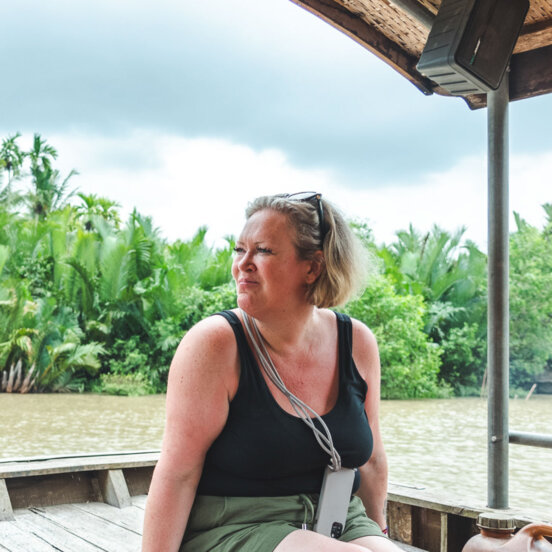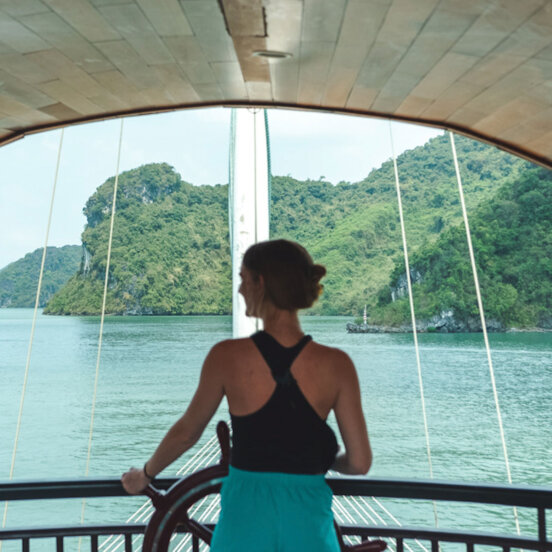Why these five countries have a thriving singles culture

Once upon a time, single living was looked upon with suspicion and even pity. Now, it’s slowly shifting to be more akin to a badge of honour: an emblem of freedom and choice. People are choosing to look beyond the nuclear family dynamic in order to live alone, often in a community where doing so is the norm. In such places, single living is starting to become a collective experience, with its own distinct identity. Here are five countries around the world where flying solo is both accepted and positively embraced.
Japan

In Japan, half the nation are currently single, and over 25% are forecast to be ‘lifetime singles’. One in four single people have expressed that they are actively against getting married, too. While this figure has been the source of some ominous rumblings about loneliness and the economy, it is in fact a very good thing for most involved.
Take 41-year-old Miyoko Taniguchi, of the many ohitorisama (people who live and do things alone) behind Japan’s recent boom in single living. “It’s definitely more relaxing on one’s own,” says Taniguchi, who, despite having a boyfriend, lives alone and often chooses to drink alone in her local neighborhood bar. So-called “herbivore men” – painted as suave urbanites who have no interest in relationships – are also on the rise.
There are many reasons behind this shift. Craving freedom, people are opting to sidestep a negative gender dynamic that is inexorably tied to marriage in Japan, even now. Other people divorce or choose to live single but with relationships on the side. Whatever the motivation for this super-solo society, there’s nothing bleak about it. In Japan, it’s completely normal for people to dine out, sing karaoke and live alone. You might be single, you might not, but flying solo is a route to fulfilment that’s endorsed on many levels.
Sweden

Around 47% of households in Sweden have just one occupant; typically a child-free, single adult. The country’s high-tax welfare system means people can afford to live alone if they want to, and there’s great value attached to individual freedom and gender equality. Rather than being a taboo, being single is an entirely accepted state of affairs, and one that’s facilitated by Sweden’s comprehensive ‘cradle-to-coffin’ support structure.
“I’ve never had the feeling there was anything wrong with me for living alone,” says Andreas Sjöström, one of the many single Swedes living in city of Gothenburg. “I know plenty of others who also live in my situation, women and men alike. Some single, some with partners, but for whatever reason they have not moved in with each other.” It’s this attitude that empowers people like Swede Maria Kjell, who refers to herself as ‘a professional single’. “I enjoy being free,” she tells The Local. “I can go wherever I want and do whatever I choose – I don’t have to ask anybody. If I’m in a relationship and it’s not really good, I always feel bad when I do things for myself.”
Canada

Lone rangers in this majestic land of beauty now outweigh all other kinds of households, with nearly 30% of Canadians choosing to live alone. Rapid urbanization and a rejection of the nuclear family model means more professionals are gravitating towards solo city life in places like Toronto, Montreal and Vancouver. People in this growing demographic may or may not be in relationships, but either way they tend to live alone minus children – yet in the vicinity of other like-minded solos.
“You can live alone but also be together with many people like you,” sociology professor and single living author Eric Klinenberg tells the Toronto Star. “Certain neighborhoods where up to 70% of households have just one person tend to have booming public areas, with good restaurants and bars and cafés and bookshops. People can come together in public and live alone and be very social.” One such single dweller, Davide Mastracci, is pretty happy with his solo set up in Toronto. “When you live by yourself you basically have total control over your own place,” he tells the paper. “You can set it up however you want.”
South Korea

The number of people living alone in South Korea has surged in recent years: one in four households are now single occupancy, and experts predict two in five people will be living alone by 2050. As in other places with similar trends, this is partly down to higher life expectancy. But it’s also because of a growing population of young professionals who are getting married older or not at all, and choosing not to have kids. This means they have greater disposable income for solo housing, and companies have responded to the jump in demand with furniture and gadgets designed for one-person spaces.
As in Canada, solo dwellers tend to concentrate in buzzing urban areas, which in turn feeds their single way of life. “Singles tend to concentrate in areas where suitable accommodation and jobs are available, often leading to thriving and creative communities,” reads an article from South Korea’s Haps magazine. “In Seoul, for instance, half of all the singles in the entire city live in the narrow band around subway line 2, which is dense with cafes, restaurants and retail spaces as a result.” The magazine warns against romanticizing the trend too much, however: “The reality is that it [single living] is sharply polarized alongside gender and income. In short, whereas most singles in their 30s to 40s are middle-class professional men, there are an equal number of women in their 60s to 80s living in abject poverty.”
Brazil

Família comes first to many in Brazil but that hasn’t stopped it becoming one of the fastest growing nations for one-person households in the world. While the story of a Brazilian town of single women searching for men that surfaced a few years ago was quickly exposed as a myth, the fact remains that more and more locals are choosing to live solo. As in other places, this change is fuelled by a booming economy, rapid urbanization and women marrying less or later.
And it’s evidenced at all levels of society, right down to the sales of ready-made meals “much favoured by lone rangers”, according to The Economist, which have recently more than doubled in sales. And if the idea of munching away on a one-person meal seems to land on the gloomier end of singledom, it’s balanced by Brazil’s broad-ranging attitude to family.
Everyone joining the regular gatherings is considered as family, a blood relation is of lesser importance. According to the Huffington Post, this derives from parentela, a concept hailing from northeast Brazil in which large, intimate groups are held together around extended networks of families and friends. All of this drives home the social benefits of single living, providing the glue through which Brazil’s solo living communities thrive.
Ready to celebrate your independence by taking a solo trip? Join Flash Pack today to go on an adventure with other like-minded travelers.
Got a story or adventure that could inspire a solo traveler like you? Tag @flashpack on social or email [email protected] to be featured.
Images: Flash Pack and Unsplash








